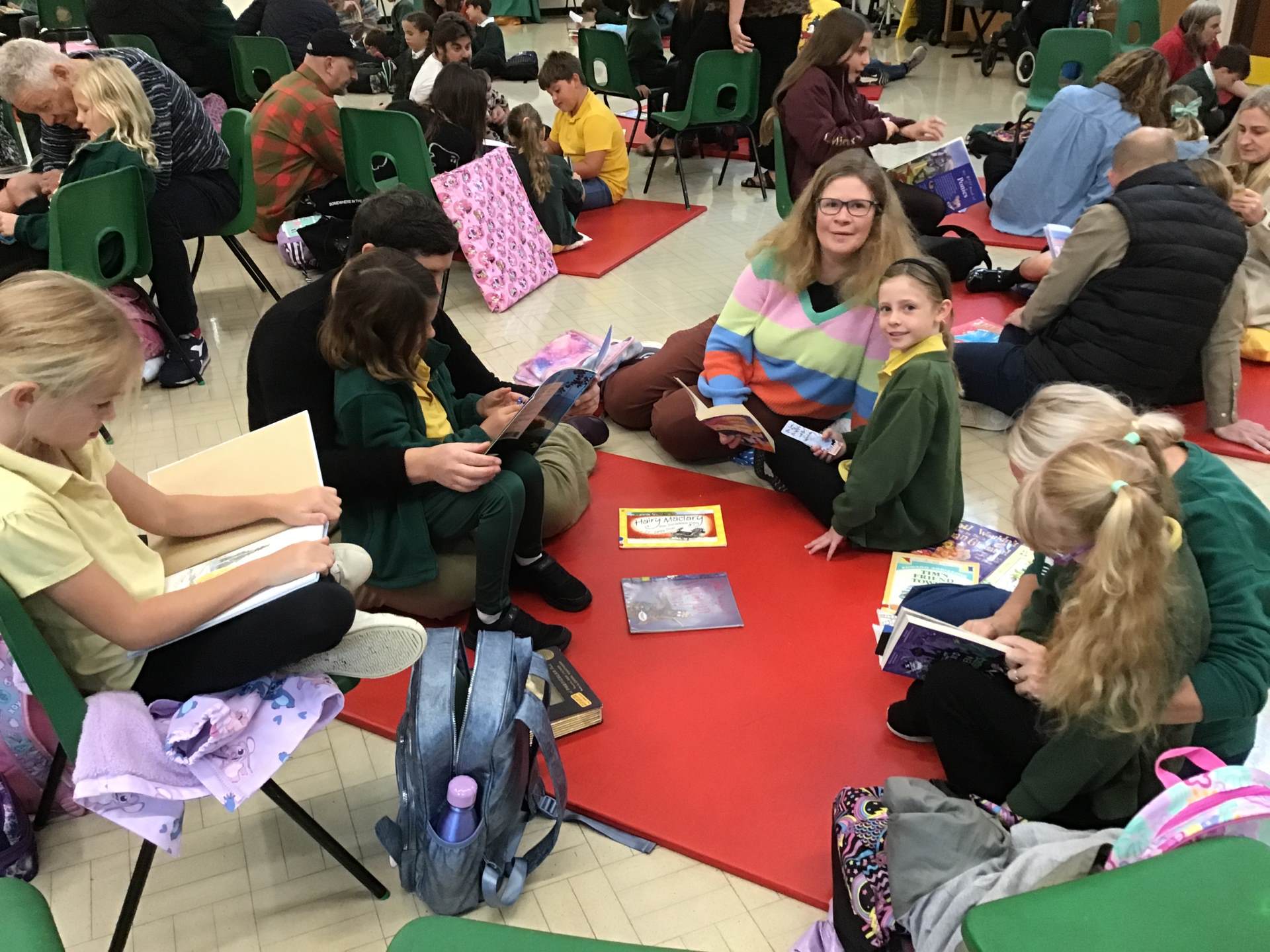Reading
Vision
Literacy is at the heart of everything we teach. We aim to enthuse and inspire our children. We want them to communicate with confidence. We want them to enjoy the written and spoken word.
The importance of Reading
Teaching children to read helps them develop their language skills. It also helps them learn to listen. Reading develops our imagination and creativity. Through enjoying a range of texts, we discover new things.
We live in an information age and reading is the main way to access it. Books, magazines and even the internet are great learning tools which require the ability to read and understand. A person who can read can learn about any area of life that interests them.

Reading at Seaford Primary School
The children have many opportunities throughout the week to develop their love of reading. We base our literacy lessons around quality texts, often linking to our history, geography or science topics.
In Early Years, the children learn to read through the phonics programme Sounds Write and exposure to high quality texts. Throughout KS1, the children progress through Sounds Write reading scheme books, leading towards becoming ‘free readers’.
All children in KS2 follow the Accelerated Reader programme. They have a test five times per year and the results of the tests give them a reading age and reading level. They read and do comprehension quizzes on books within their level.
The children receive certificates for set achievements. They may also become ‘Word Millionaires’, which we celebrate in assembly. Our Reading Ambassadors set good examples to the rest of the school and help with a variety of reading related activities such as manning the library, our outside reading garden or our second-hand bookshop.
We organise a special reading event every term as well as an annual book week. World Book Day is celebrated and the children regularly mix with other year groups to enjoy a book or two.
Reading tips for KS1 parents
Top tips on how to hear your child read aloud to you
1. Try to get in the habit of having your child read to you as often as possible, ideally every day. Choose a quiet, undistracted time and snuggle up. For under-7s, 5 - 10 minutes is usually long enough. Little and often is best.
2. If it’s a new book, always start by having a look at the book’s cover, title, pictures and characters.
3. Don’t pressurise if he or she is reluctant. If your child loses interest, then do something else and come back to it at a better time.
4. When your child tries to 'sound out' words, encourage the use of phonetic letter sounds rather than 'alphabet names'. For ‘cat’ you’d say c-a-t; not CAT.
5. If your child mispronounces a word don’t interrupt immediately. Instead allow opportunity for self-correction. It’s better to tell a child some unknown words or give clues from the pictures to keep things moving rather than insisting on their trying to build them all up from the sounds of the letters.
6. Use the pause, prompt, praise technique. If they make a mistake, pause for a few seconds to see if they self-correct, then prompt by asking: “Does that makes sense?” Or give the sound they’re struggling with, or help them sound it out. Then praise them for finishing the page or trying hard.
7. If your child says something nearly right to start with, that’s fine. Don't say “No, that's wrong,” but “Let's read it together”, and point to the words as you say them. Only help if they’re really stuck and boost your child's confidence with constant praise for even the smallest achievement.
8. Make sure the book is the right level to build up your child’s confidence. Struggling with a book with lots of unknown words is pointless for your child. Flow gets lost and words can’t be understood. You need to smooth their path because discouraged children can easily become reluctant readers.
Reading tips for KS2
Even if your child reads independently and fluently, it’s important to hear them read aloud and discuss their reading with them. Here are some tips on how you can support your child with their reading.
Encourage your child to read daily. Help them find a quiet time when they can enjoy getting engrossed in a story. This can be either with you or on their own. Showing them that reading is important and enjoyable, will help them become readers for life.
Make trips to the local library a regular event. Encourage your child to read not only books but also magazines, news-papers, poetry, comics, non-fiction etc.
Encourage your child to use expression when reading aloud, putting on different voices for different characters. Show them how to make the text come alive by doing the same.
Take turns at reading and discuss words that might be tricky to read or under-stand.
Talk to your child about what they’re reading. Ask questions such as:
- What is the main character like? How do you know?
- What’s happening right now in the story?
- What do you think is going to happen next? Why do you think this?
- Who is your favourite character? Why?
Accelerated Reader
More details of the Accelerated Reader Programme can be found in the Parent Guide belowParents-Guide-to-Accelerated-Reader



